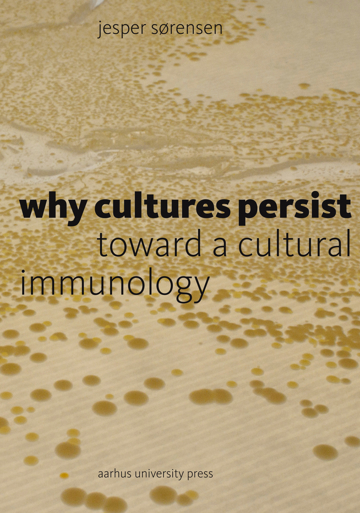
Why Cultures Persist
Toward a Cultural Immunology
A part of the subject areas Cultural studies, Biology, Natural science, and Anthropology
More about the book
About the book
Why do humans form groups? Why would a brain, preoccupied with predicting the world, make the formation of cultures possible? And how does our socio-historical context shape the way we think?
In a world faced with numerous global challenges and burdened by conflicts defined along cultural boundaries, now more than ever we need a comprehensive theory of the role of culture in human cooperation. Cultures persist: not only because they enable coordination and cooperation between otherwise selfinterested individuals, but because they cultivate our minds to make us grasp and sense the world in a particular manner, creating enduring structures of mutual solidarity based on a shared experience of reality.
But cultures are not static: they evolve. As we endeavor to predict and classify the spheres of interaction in which we participate, culture falls into place and can be seen to function much like an immune system. If we are to understand the resilience of cultural groups and the evolution of the human mind, we need only look inside ourselves, to our predictive brain and to the immune system regulating the interaction across borders of both cells and cultures. Alongside our natural immune system, humans are endowed with cultural immune systems that bestow individuals and groups alike with resilience and adaptability.
This book is a call for the formation of a genuine cultural immunology.
In this erudite and compelling work Sørensen tackles the problem of why and how humans congregate in groups of various sizes, small and very large, apparently held together only by highly abstract concepts such as ideologies or religious beliefs. The simple answer would be “culture provides the glue”. Sørensen does not settle for simplicity. He proposes with powerful arguments that we look to how the immune system works and then employ this knowledge analogically to the problem at hand. The analysis is nothing short of brilliant! You will find out how the predictive capacity of humans plays a fundamental explanatory role. Read this book and be edified!
E. Thomas Lawson, Editor of Journal of Cognition and Culture
Jesper Sørensen is Associate Professor of Comparative Religion and co-founder of the Religion, Culture and Cognition research group at Aarhus University. He has published widely on magic, divination, ritual, cognitive historiography, and theory of culture and religion.
Press reviews
Jesper Østergaard, Fagbladet Religion
"(...) giver et nyt berigende perspektiv på vores fag (...)".




